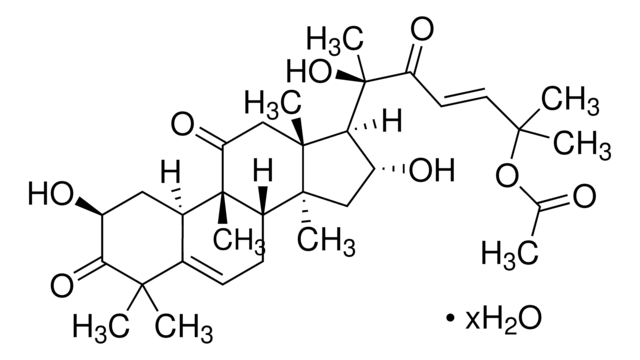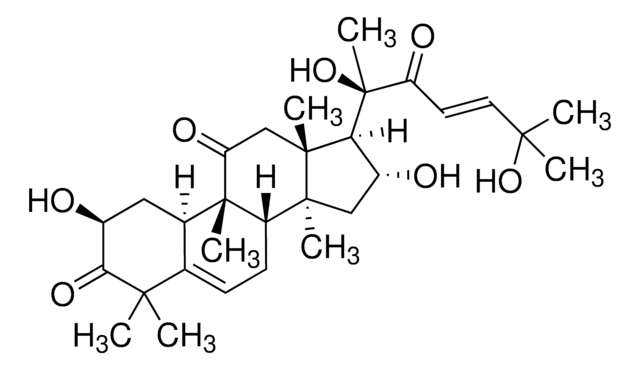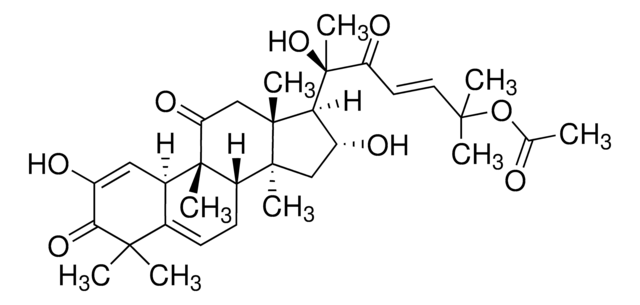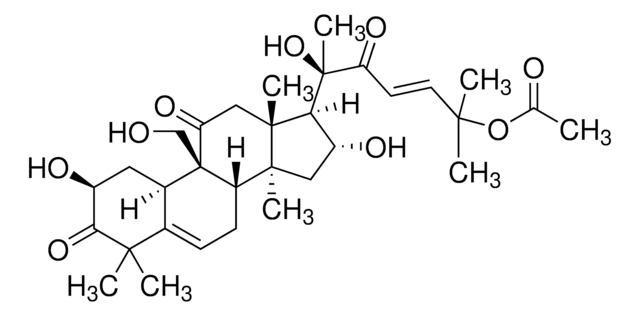PHL82226
Cucurbitacin B
phyproof® Reference Substance
Synonym(s):
Amarine
About This Item
Recommended Products
grade
primary reference standard
product line
phyproof® Reference Substance
Assay
≥90.0% (HPLC)
manufacturer/tradename
PhytoLab
application(s)
food and beverages
format
neat
storage temp.
2-8°C
SMILES string
O[C@H]1[C@@H]([C@@]2([C@]([C@H]3[C@]([C@@H]4C[C@@H](C(=O)C(C4=CC3)(C)C)O)(C(=O)C2)C)(C1)C)C)[C@](O)(C)C(=O)\C=C\C(OC(=O)C)(C)C
InChI
1S/C32H46O8/c1-17(33)40-27(2,3)13-12-23(36)32(9,39)25-21(35)15-29(6)22-11-10-18-19(14-20(34)26(38)28(18,4)5)31(22,8)24(37)16-30(25,29)7/h10,12-13,19-22,25,34-35,39H,11,14-16H2,1-9H3/b13-12+/t19-,20+,21-,22+,25+,29+,30-,31+,32+/m1/s1
InChI key
IXQKXEUSCPEQRD-DKRGWESNSA-N
General description
Legal Information
Signal Word
Danger
Hazard Statements
Precautionary Statements
Hazard Classifications
Acute Tox. 2 Oral
Storage Class Code
6.1A - Combustible acute toxic Cat. 1 and 2 / very toxic hazardous materials
WGK
WGK 3
Flash Point(F)
Not applicable
Flash Point(C)
Not applicable
Choose from one of the most recent versions:
Already Own This Product?
Find documentation for the products that you have recently purchased in the Document Library.
Our team of scientists has experience in all areas of research including Life Science, Material Science, Chemical Synthesis, Chromatography, Analytical and many others.
Contact Technical Service








